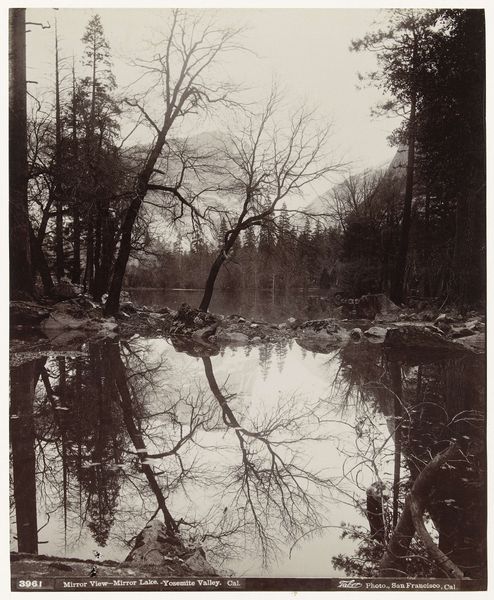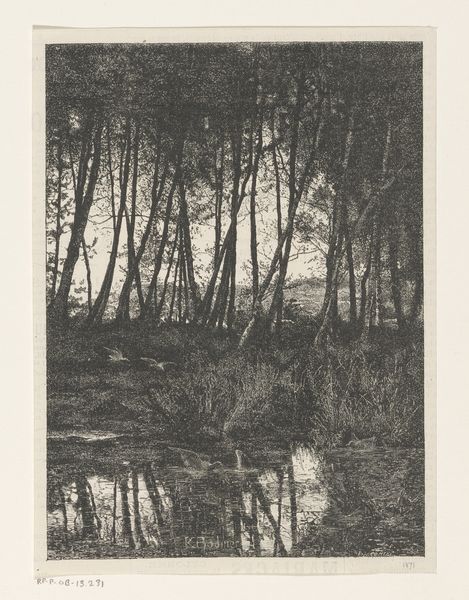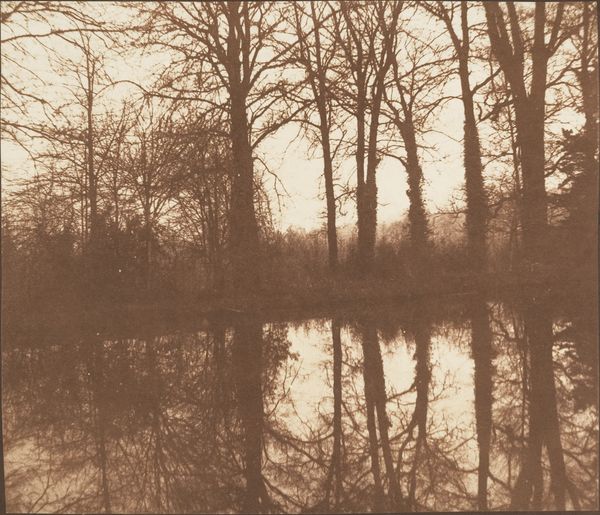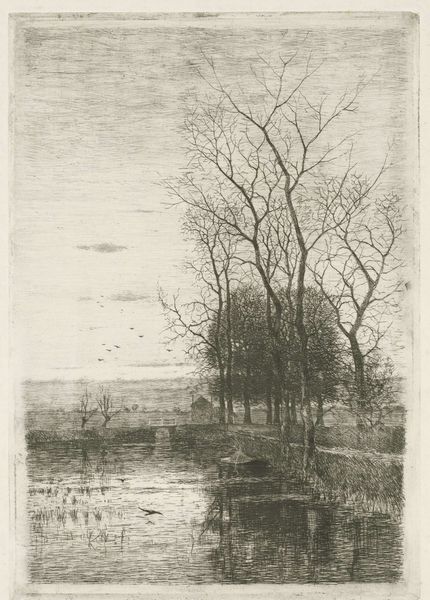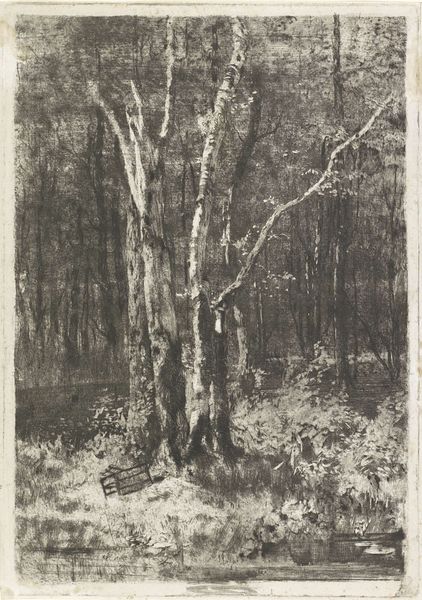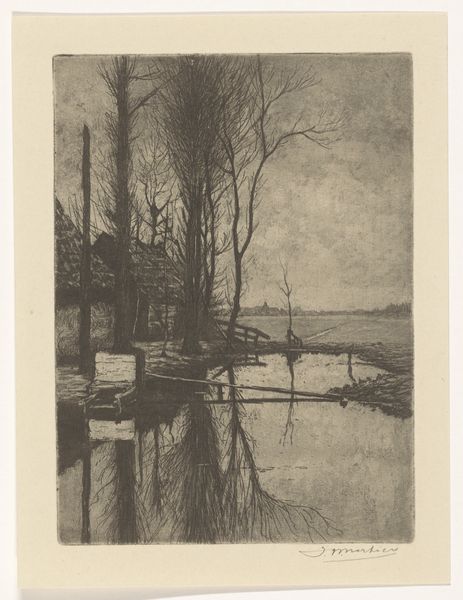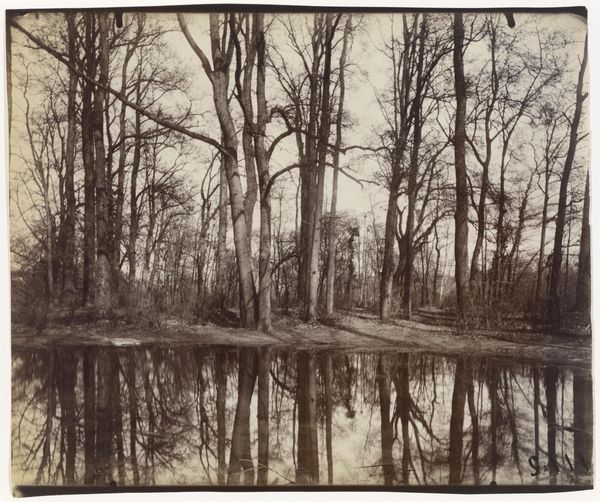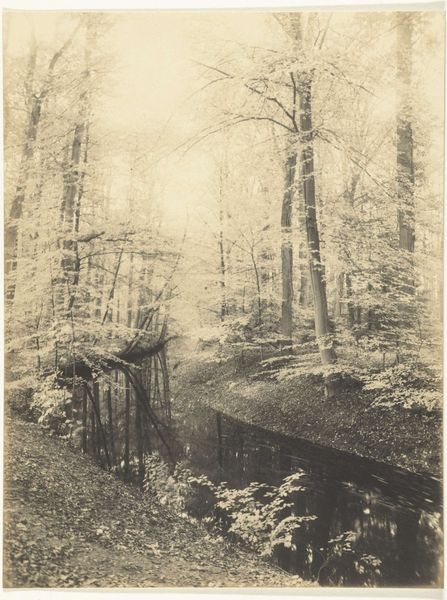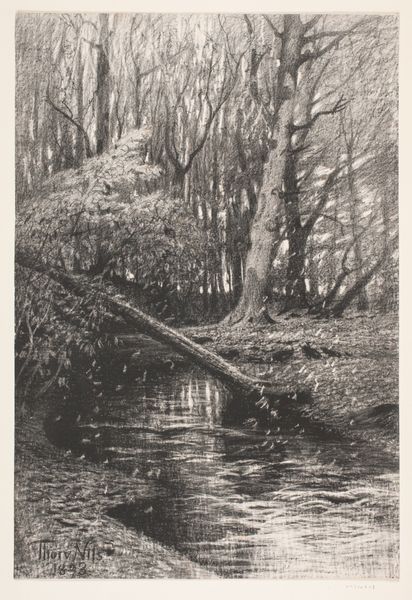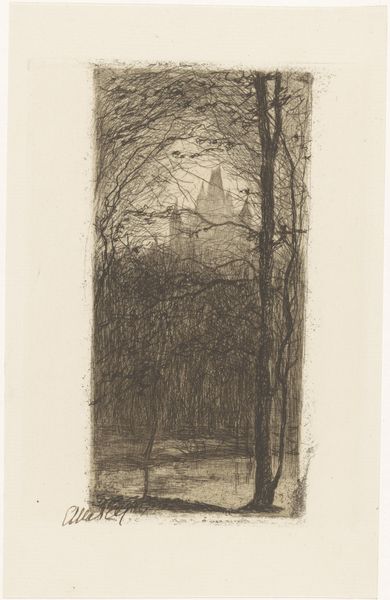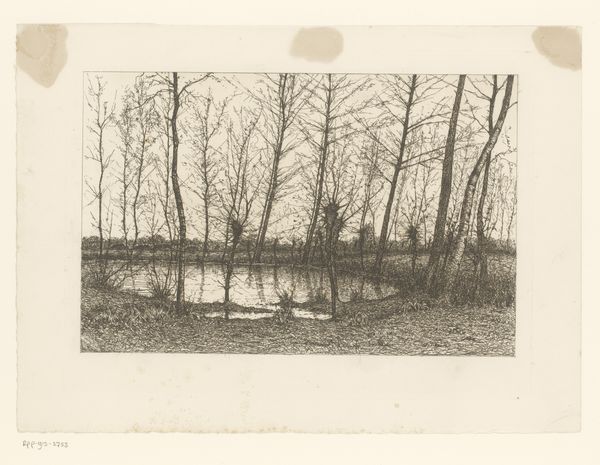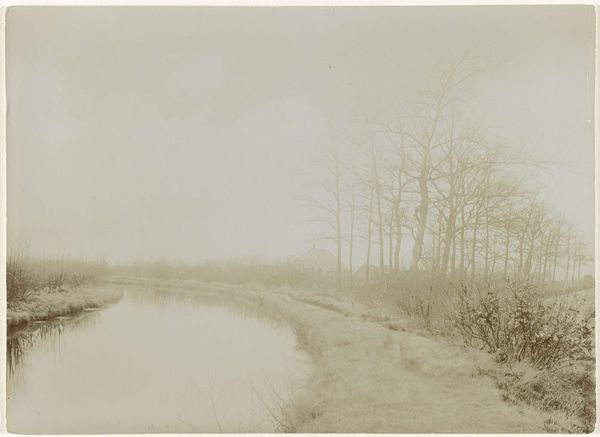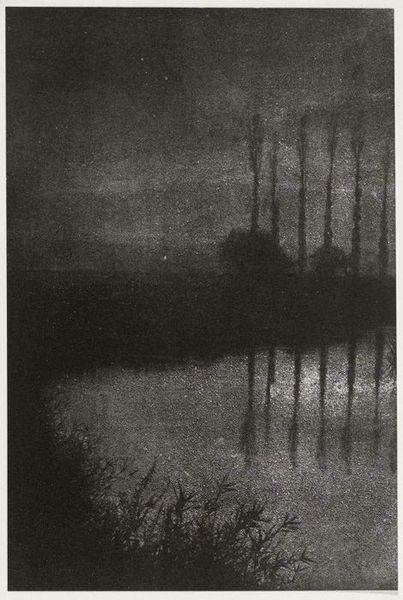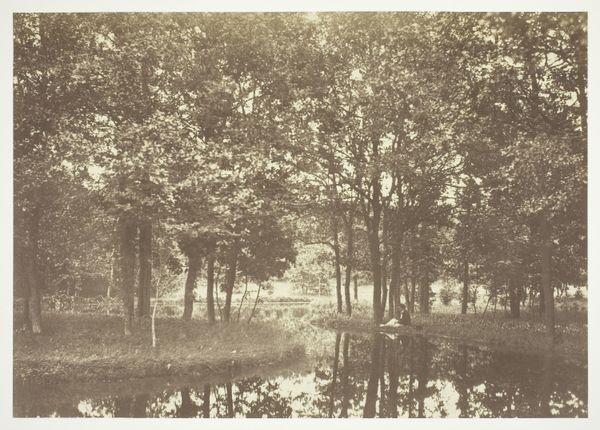
Copyright: National Gallery of Art: CC0 1.0
Editor: Here we have Edward Steichen’s “Landscape--Evening,” created around 1901, a photograph rendered as a print. The murky reflections in the water create such a somber, almost unsettling mood. What do you see in this piece? Curator: This image is incredibly evocative. For me, it speaks to the cultural anxieties at the turn of the century. Pictorialism, as a movement, often sought to elevate photography to the status of art by imitating painting. Consider the historical context: rapid industrialization, urbanization, and a growing sense of alienation. Doesn’t this image resonate with those feelings? The blurred lines, the lack of clarity, the retreat into a romanticized, almost dreamlike natural world - it's a rejection of the modern, a yearning for something lost. What do you make of that? Editor: That’s fascinating. I hadn’t considered the socio-political climate. I was mostly focused on the formal aspects: the composition, the use of light and shadow. But you're right, there's a definite sense of unease beneath the surface beauty. Curator: And think about whose stories are *not* being told in these idealized landscapes. Who has access to these serene, unspoiled spaces? What narratives are being suppressed or erased in favor of this dominant aesthetic? Consider how ideas about gender, race, and class intersect here. Who is allowed to find solace in this vision of nature, and who is excluded? Editor: I never would have thought to look at it that way, considering whose narratives are omitted! Thanks! Curator: My pleasure. Art is never created in a vacuum. It’s always in conversation with the world around it. And often it takes critical questioning to unpack its deepest meanings. Editor: Absolutely. I'll definitely be looking at landscapes differently now.
Comments
No comments
Be the first to comment and join the conversation on the ultimate creative platform.
